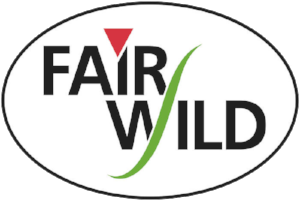Wild about rose hips in Serbia – newly certified ingredients on sale!
Serbia - August 2017. This year has seen Plantamell – a family-owned herbal products business – successfully bring FairWild certified rose hip products to the market; the first such initiative in Serbia.
Plantamell was established over 10 years ago, and is based in Svrljig in the hilly south-east of the country. With a staff of 8 people, it purchases over 100 different wild plants and herbs from a collection area spanning over 500 km2 in total.
The main economy of Svrljig was formed and still revolves around the collection and processing of medicinal and aromatic plant material. The region has always been sparsely populated, and over the last 20 years has seen further rural-urban emigration. This has lead to many socio-economic challenges for the local population, but has made the area very suitable for organic and sustainable agriculture, due to the lack of intensive industry and pollution.
Plantamell works with a network of local collectors, drawing on their extensive knowledge and providing seasonal work that allows them to supplement their income.
Their involvement in FairWild came about through collaboration with a number of industry partners, namely Nateva, Neal’s Yard Remedies and the Organic Herb Trading Company.
To pilot FairWild certification, Plantamell has initially focused on rose hips – in response to the demand for rose seed oil, a high value product that is currently in short supply globally.
The target species is dog rose, Rosa canina, which grows in high density throughout the abandoned countryside. Plantamell’s team carry out the preliminary processing, separating the seeds from the shell to prepare them for oil extraction. The rose hip shells are then cut and dried, ready for export for use in fruit teas and other products.
Ljubiša Savić, Plantamell’s Manager, said “Our company has aimed to follow ecological practices from the very beginning, and also to be fair and just with regard to the social situation of everyone involved.”
“Our collectors undergo training twice a year, including when and where plants can be collected, and the most appropriate ways to collect the different plant parts.”
The project has required a lot of commitment and collaboration from all involved to successfully gain the Year 1 FairWild certificate, and bring the products to market.
Walter de Boeck, from NATEVA, commented “One of the challenges we faced in partnering with Plantamell was that there was a high demand for rose seed oil, but initially no buyer for the rose hip shells – which Plantamell also need to sell in order to be profitable and avoid wasting the resources. To solve this, we brokered a trade relationship with Organic Herb Trading Company (OHTC), U.K., who were keen to add the hips to their growing portfolio of FairWild products.”
FairWild certification requires a resource assessment to be carried out, to estimate the maximum sustainable yield that can be taken from the collection area. The scheme will also see Plantamell work with their collection teams to identify potential uses of the FairWild premium fund, to which the industry buyers will contribute.
Mr Savić said, “There are already some ideas being put forward, such as playground equipment and investments into education and health. This could be a real boost to the local community, which has really suffered from the loss of young people moving to the cities.”
The rose hip harvesting itself can be quite a profitable enterprise. For 2016, Plantamell calculated that on average, the collectors would earn twice the minimum wage for a day’s work. On a very successful day, a collector might harvest up to 50 kg of rose hips, giving an income of four times the minimum wage.
Savić said, “Rose hip collection is actually very popular with the people that harvest for us. The collectors are free in a way that no-one is in the city. They work as hard as they wish, and for as long as the day and weather allow it. Of course, they need to avoid the thorns!”
It is hoped that the FairWild rose hip project will be just the start of a new adventure for Plantamell, who are also working to adopt the sustainable wild harvesting practices for the many other species they harvest. You can read more about their story in the words of project supply chain partner Peter Rangus, on OHTC’s website.
Eileen Clark, Supply Chain Project Manager at OHTC, said, “When we learned about the opportunity to support a new FairWild project in Serbia, we were thrilled to get involved. The products are high quality and suitable for a variety of purposes, such as fruit tea, equine health products, and even exfoliant scrubs! We hope we will be successful in finding long term buyers who will support Plantamell and their community of wild harvesters.”
In the future, Plantamell may also be able to exchange their experience with other companies in the region. The new LENA project aims to link livelihoods and economic development with nature conservation in the Danube region, and includes activities on sustainable use of wild plants in Serbia, Bulgaria, Slovenia and Hungary. The three year project will help to develop a network of wild plant stakeholders in this important sourcing region.
For more information and to make enquiries about the FairWild-certified rose hip products currently on sale, please contact OHTC on info@organicherbtrading.com. Plantamell can also be contacted on plantamell@gmail.com.
Learn more about the ecology and traditional uses of Rosa canina on the WhyGoWild website

